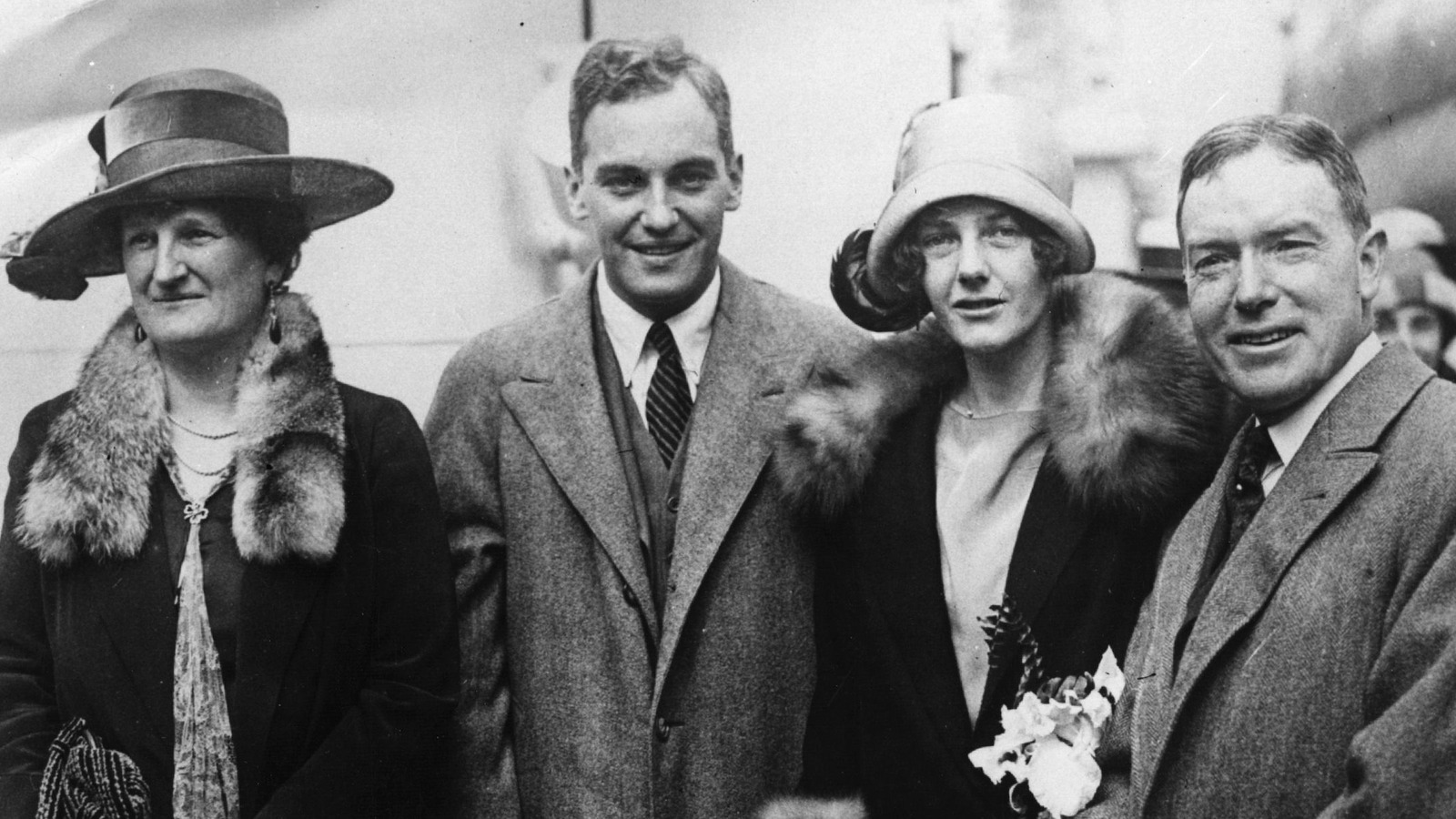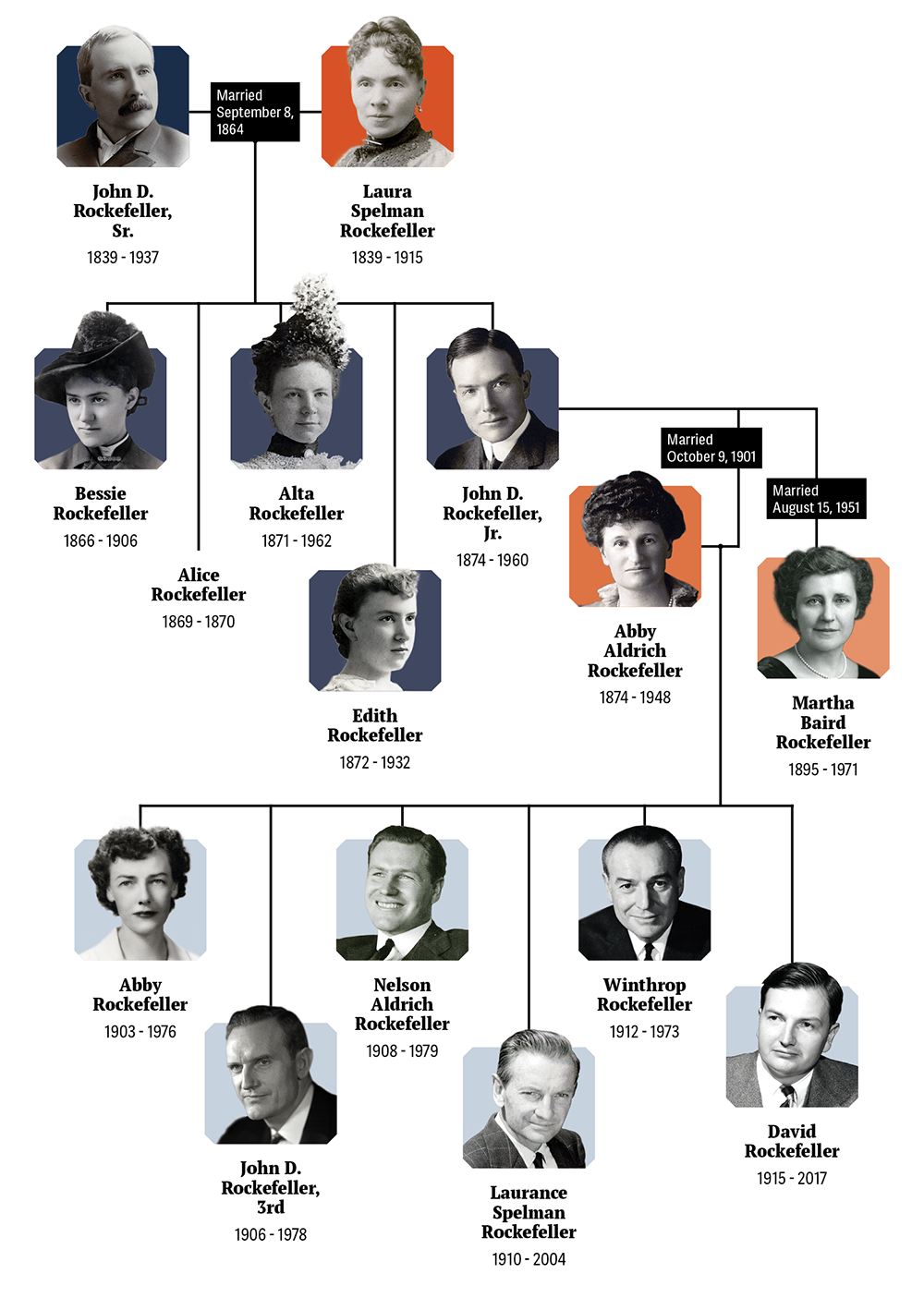Rockefeller Family: History, Wealth & Legacy | From Oil To Philanthropy
Could one family truly shape the destiny of a nation, not through conquest, but through commerce and calculated generosity? The Rockefeller family, an American dynasty synonymous with oil, wealth, and philanthropy, not only amassed an unparalleled fortune but also profoundly altered the course of the United States, its economy, and its social fabric.
The story begins in the mid-19th century, far from the gilded mansions and sprawling estates that would come to define the Rockefeller name. John Davison Rockefeller, born on July 8, 1839, in Richford, New York, was the second of six children. His father, William Avery Rockefeller Sr., a traveling salesman with a penchant for deception, instilled in young John a complex understanding of business and a keen sense of self-reliance. The familys origins, however, trace back further, to Germany, with Godfrey Rockefeller immigrating to the United States in the early 18th century. The family eventually settled in Cleveland, Ohio, a city poised on the cusp of industrial revolution. The seeds of the familys future were sown in this burgeoning industrial hub.
| Attribute | Details |
|---|---|
| Full Name | John Davison Rockefeller |
| Born | July 8, 1839, Richford, New York |
| Died | May 23, 1937 (aged 97), Tarrytown, New York |
| Nationality | American |
| Known For | Founder of Standard Oil, the first American billionaire, philanthropist |
| Parents | William Avery Rockefeller Sr. and Eliza Davison |
| Spouse | Laura Celestia "Cettie" Spelman Rockefeller |
| Children | Elizabeth, Alice, Alta, Edith, and John D. Rockefeller Jr. |
| Net Worth (Peak) | Estimated $1.4 billion (1913), equivalent to approximately $29.3 billion today. |
| Key Achievements | Founder of Standard Oil, a leader in the petroleum industry, major philanthropist (Rockefeller Foundation, University of Chicago). |
| Website | Rockefeller Foundation |
In the early 1850s, young John D. Rockefeller began his career. With a modest initial investment, he gradually built his fortune, driven by an acute business acumen and an unwavering determination. He was industrious even as a boy, and his future oil magnate was about to change the world.
Rockefellers entry into the oil business came at a propitious time. The discovery of oil in Titusville, Pennsylvania, in 1859, ignited a boom, but the industry was chaotic and inefficient. Recognizing an opportunity, Rockefeller, in 1870, founded Standard Oil in Cleveland, Ohio. He implemented a strategy of aggressive expansion, focusing on efficiency and consolidation. Through ruthless tactics, including negotiating favorable deals with railroads and driving competitors out of business, he gradually gained control of the oil refining industry. By the late 1870s, Standard Oil controlled approximately 90% of the refining capacity in the United States.
This dominance, however, came at a cost. Standard Oil's practices attracted widespread criticism, fueling public outrage and antitrust investigations. The company faced accusations of monopolistic practices, price manipulation, and unfair competition. The legal battles culminated in the Supreme Court's 1911 ruling, which ordered the breakup of Standard Oil under the Sherman Antitrust Act. Despite the challenges, the family's wealth was already vast, and its influence, firmly established.
The wealth amassed by John D. Rockefeller made him the world's first billionaire. Yet, perhaps equally significant to his financial success was his commitment to philanthropy. Driven by a Baptist faith, Rockefeller believed in the responsible use of wealth. He established the Rockefeller Foundation and other charitable organizations, donating vast sums to education, medical research, and the arts. His philanthropic endeavors extended far beyond the United States, impacting global health initiatives, and shaping the landscape of higher education through the establishment of institutions like the University of Chicago.
The Rockefeller family's legacy extends beyond John D. Rockefeller Sr. His son, John D. Rockefeller Jr., played a crucial role in continuing the family's philanthropic work. He oversaw the expansion of the Rockefeller Foundation, contributing to significant initiatives such as the preservation of Colonial Williamsburg and the development of Rockefeller Center in New York City. His efforts helped to diversify the familys interests and continue their philanthropic legacy.
The Rockefeller story is not without its complexities and controversies. The Standard Oil empires methods were often ruthless, and the family faced constant scrutiny over its wealth and power. The Rockefeller family was a target of social and political criticism. They also had to navigate the challenges of wealth, including inheritance, trusts, and tax avoidance. However, their legacy is much larger than that and Their philanthropic deeds are as equally recognized as their fortune.
The family's influence persisted through subsequent generations. Grandson Nelson Rockefeller served as Vice President of the United States. The family's descendants have continued to be involved in business, politics, and philanthropy. Rockefeller Capital Management, for example, provides financial services, drawing on the family's heritage of managing wealth across generations. While the family no longer tops the list of wealthiest Americans, their impact on the economy, politics, and philanthropy remains undeniable.
The familys impact is still visible today. The Rockefeller Brothers Fund and Rockefeller University, among other institutions, continue to provide educational opportunities and philanthropic endeavors, ensuring the family's commitment to the United States and the wider world continues. The family's enduring influence on American society and the energy industry is a captivating saga of wealth, strategy, and legacy.
The rockefeller family used smart financial strategies to pass on their fortune across generations, discovering their secrets of accounting, trusts, tax avoidance and philanthropy, the article shows the ongoing impact of john d. Rockefeller's vision.
In conclusion, the Rockefeller family's story is more than a tale of wealth accumulation; it is a narrative of industrial innovation, strategic business practices, and a commitment to philanthropy. Their journey from Germany to America to the heights of American society provides insight into the complexities of managing vast family fortunes across generations. The Rockefeller dynasty's impact on American society and the global landscape is a testament to their enduring legacy. The rockefeller family became known for philanthropy, which created additional benefits. Rockefeller established the rockefeller foundation and other charitable organizations. This created tax savings while building a legacy of giving.
The Rockefeller family, in its essence, is a study of the multifaceted character of American capitalism.


